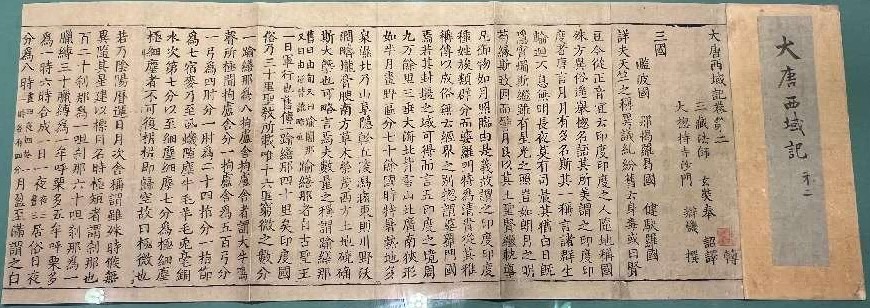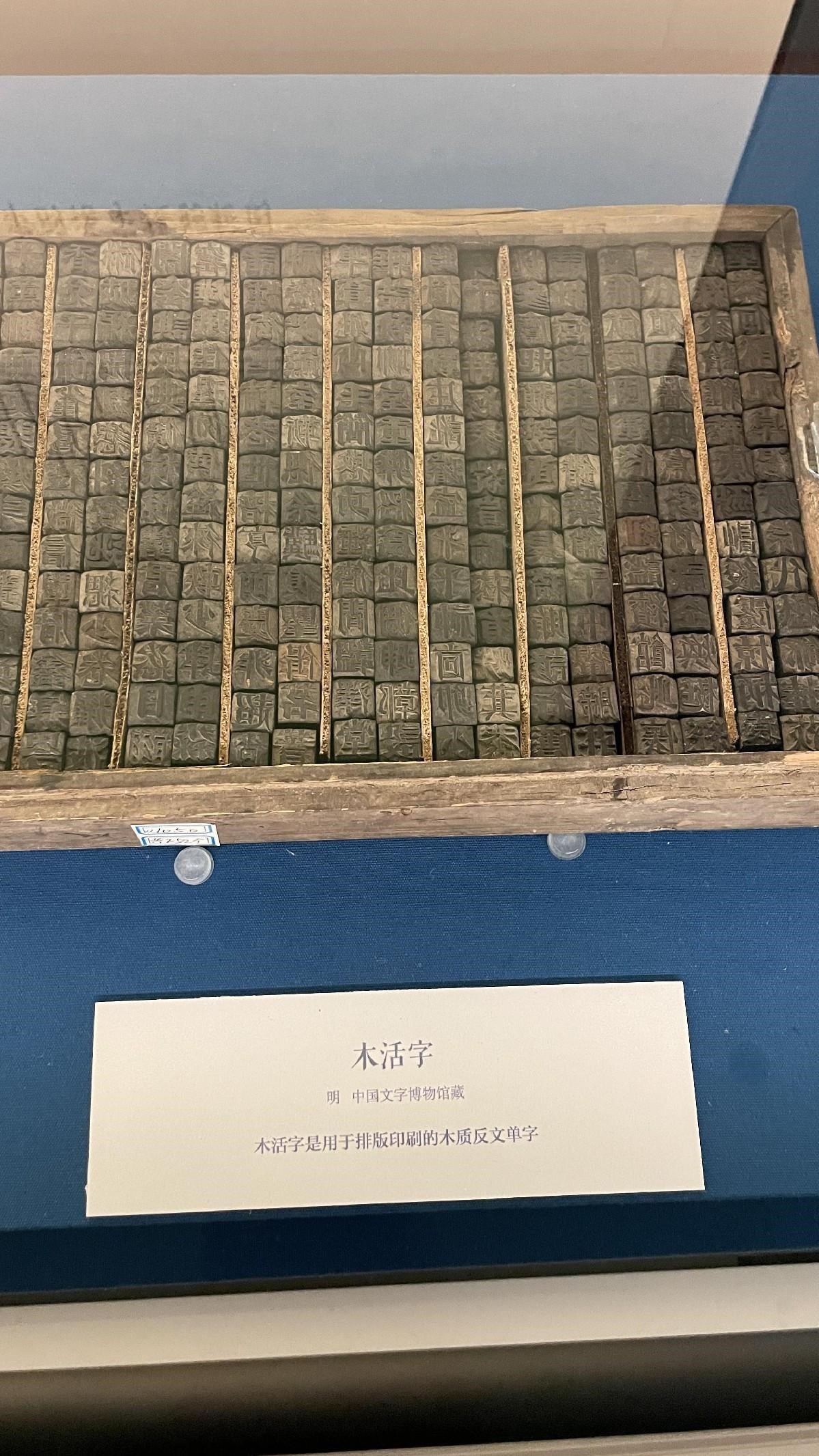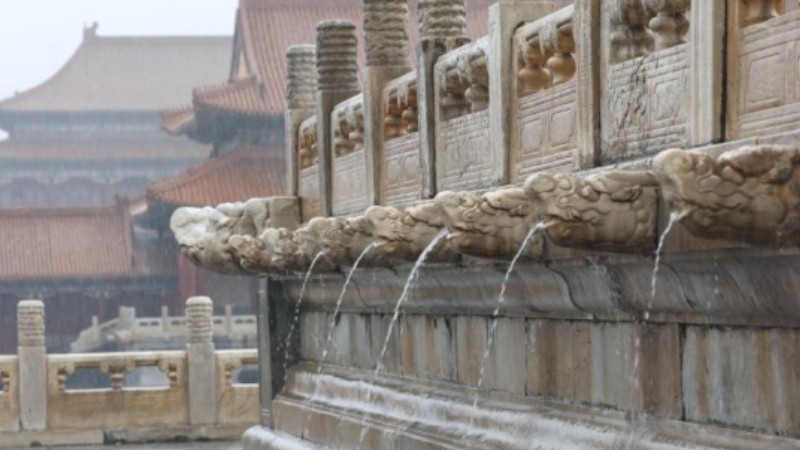China National Archives of Publications and Culture tells stories of civilization exchanges

A Song Dynasty (960-1279) edition of the Great Tang Records on the Western Regions
In the long course of human history, many civilizations emerged. Some faded away with the passage of time, and some endured despite twists and turns.
Chinese civilization has remained uninterrupted for thousands of years, only growing more vibrant as time passes. This would not have been possible without the collection, preservation and passing down of classics and publications.
Oracle bones, pottery symbols, bronze inscriptions, stone carvings, seals, bamboo and wooden slips, woodblock printing, rubbings, ancient books, chorography, maps - these artifacts record the marks of Chinese civilization, character symbols, and cultural context. They are the creators of the Chinese civilization and witnesses to the Chinese history.
Today, these cultural treasures of the Chinese nation are preserved and presented at the China National Archives of Publications and Culture, which comprises headquarters in Beijing and branches in Xi'an, Hangzhou and Guangzhou. They strengthen the bridge of mutual learning between China and civilizations worldwide.
Boasting a rich and valuable collection, the China National Archives of Publications and Culture is dubbed as a cultural gene bank of the Chinese nation. It collects nearly 24 million precious copies and editions of various publications and gathers almost 500 million data entries, with 24 million open to the public.

The original French publication of "An Introduction to The Analects of Confucius."
Like a time tunnel, the editions and copies archived tell the stories of exchanges and mutual learning among human civilizations, such as the journey of Zhang Qian, a royal envoy in China's Han Dynasty (202 BC-220 AD), to the Western regions via Central Asia, which eventually led to the opening of the ancient Silk Road, the "Journey to the West" by Tang Dynasty (618-907) Buddhist monk Xuanzang, the story of Tang Dynasty monk Jianzhen who brought Buddhism to Japan, and the legendary voyage to Southeast Asia, South Asia, West Asia, and East Africa by Chinese navigator Zheng He of the Ming Dynasty (1368-1644).
They record the extraordinary journeys of different civilizations, from their initial encounters to the exchanges and mutual learning that developed between them across various historical stages.
During the Southern Song Dynasty (1127-1279), China was a leading country in terms of navigation technologies. A green-glazed bowl with Chinese character Ji exhibited at the headquarters of the China National Archives of Publications and Culture was salvaged from the Shipwreck Huaguangjiao No.1 of the Southern Song Dynasty.
In Chinese, Ji symbolizes the Chinese people's longing for an auspicious and peaceful life. This relic mirrors the demeanor of ancient Chinese sailing afar and pioneering outward on the Maritime Silk Road hundreds of years ago.
The archives gather?a wealth of other valuable items that witness the history of cultural exchanges. These include a Song Dynasty (960-1279) edition of the Great Tang Records on the Western Regions, which chronicles Xuanzang's journey along the ancient Silk Road. Also featured is a copy of the original 1688 French publication of "An Introduction to The Analects of Confucius." This work marked the first communication of Confucian thought in French, and was a national gift to Chinese President Xi Jinping from his French counterpart Emmanuel Macron in 2019.
Two "cultural exchange day" events were recently held at the China National Archives of Publications and Culture, which were joined by 88 sinologists from some 60 countries as well as over 30 foreign experts in culture, museum studies and publishing.

Blocks for wooden movable-type printing manufactured in Ming Dynasty (1368-1644).
They were amazed by the infrastructure construction, high-quality exhibitions and displays, and the tremendous cultural treasures of the China National Archives of Publications and Culture. They also expressed their hope to strengthen communication with the archives and jointly promote the inheritance and preservation of Chinese classics and materials overseas.
With a focus on its core mission of collection, the China National Archives of Publications and Culture reaches out to the grassroots, general public, and overseas to comprehensively advance surveys, investigations, and acquisitions.
Adhering to the principles of collecting everything that should be collected, and preserving everything that should be preserved, it brings together Chinese classics and materials scattered across the country, circulating among the people, and lost overseas. It strives to include editions embodying the outstanding cultural achievements of human civilization, gathering strength for advancing human development and progress.
Different nations and civilizations are rich in diversity and have their own distinct features. No one is superior or inferior to others. Based on its diverse collection, the China National Archives of Publications and Culture strengthens mutual learning among civilizations, builds communication mechanisms and dialogue platforms for cultural exchanges, carries out international cultural exchange and people-to-people communication activities, and gathers domestic and foreign experts to launch theoretical and practical studies of bibliography.
At the same time, assisted by technology, industry and art, the archives actively innovates communication and promotion approaches, explores to establish multidimensional cultural communication paths, and works to realize the expression of bibliography in diverse forms. It excavates and presents the Chinese culture, vividly tells the historical and cultural stories behind Chinese classics and materials, and displays and disseminates the beauty of civilization and the splendor of culture.
(Liu Chengyong is the director of the China National Archives of Publications and Culture.)
The above photos are all provided by the China National Archives of Publications and Culture
Photos
Related Stories
- Protecting cultural heritage, promoting mutual learning among civilizations
- Inter-civilization dialogue a necessity for progress of mankind, say Greek scholars
- Understanding China: What does the country have to offer?
- 8th Nishan Forum on World Civilizations kicks off in China's Shandong
- Ancient civilizations hold online dialogue calling for int’l cooperation to promote world peace and development
Copyright © 2023 People's Daily Online. All Rights Reserved.









